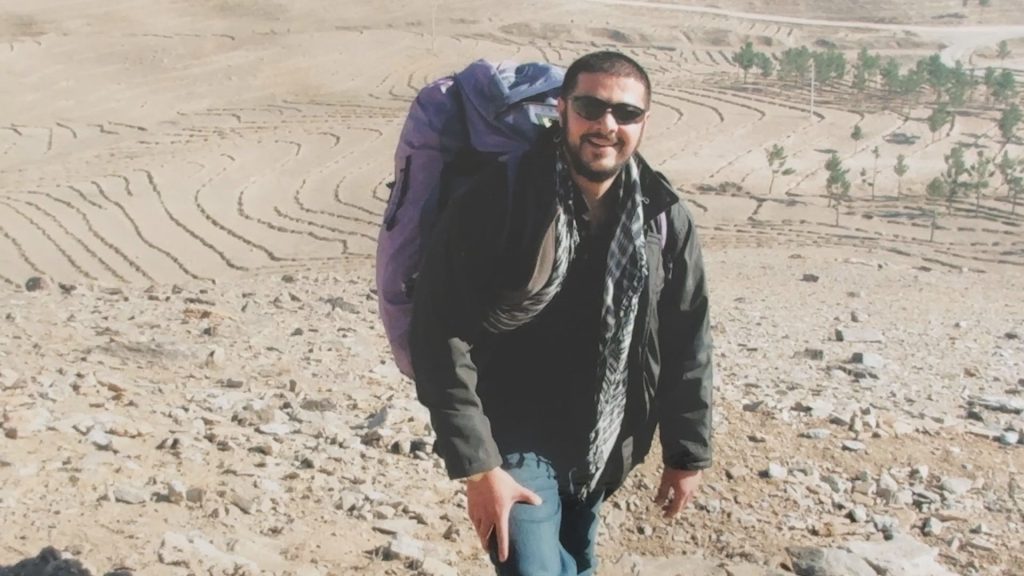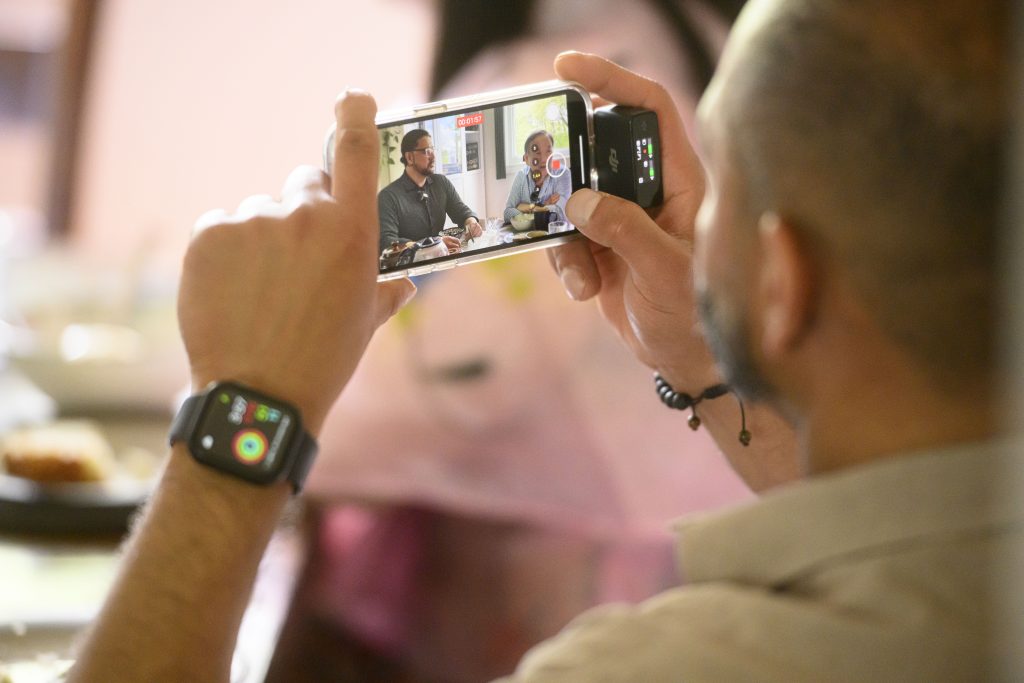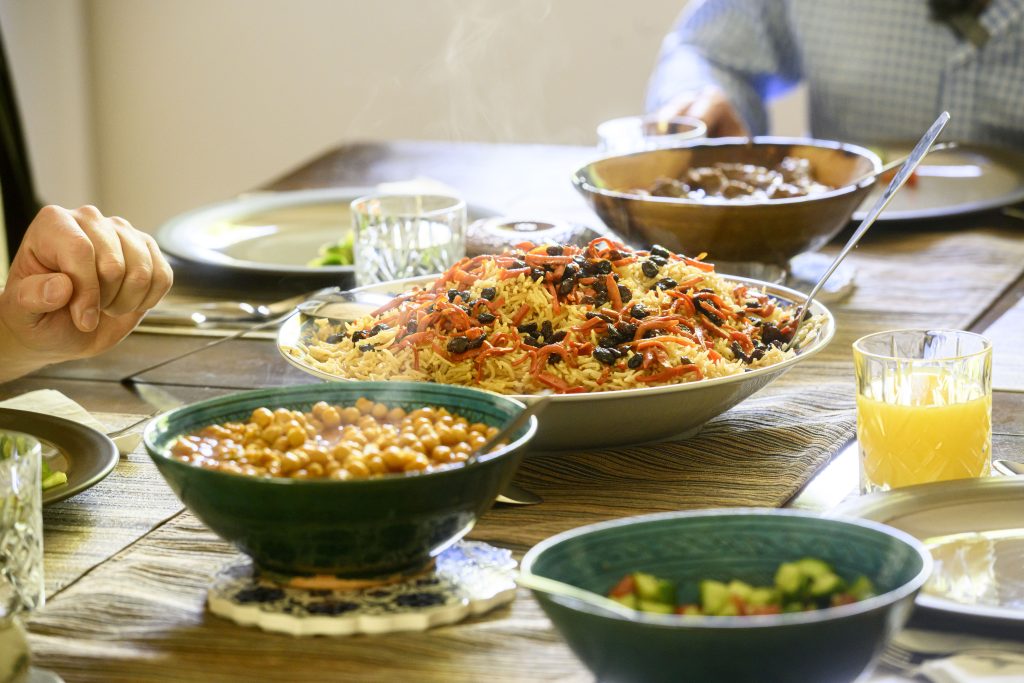Vietnamese, Afghan refugees to Canada reflect on escaping war, giving back
Posted June 13, 2024 10:23 am.
Tam Nguyen grew up surrounded by death and danger.
Born two years into the Vietnam War, Nguyen was raised against the backdrop of major violence in southeast Asia. His childhood and adolescence were marked by a strong desire to escape and make a better life for himself.
“During Vietnam War… you don’t know you’re still alive tomorrow or not,” Nguyen said. “You just know you’re alive and you have food today. That’s all we were.
“Sometime people die beside me, I still running. Me and my brother, my sister, we watch fighting like you watching a live show sometime. You get numb, sometime you don’t know what the danger because everywhere is danger, anywhere.”
That’s how Nguyen describes life in Vietnam’s countryside in the 1960s and ‘70s. It’s a far cry from his life as a refugee in Canada, working as a successful tailor in Winnipeg with the occasional encounter with big-name celebrities.
It’s also what led him to change the lives of hundreds of families in Vietnam by starting a charity.
But to get there, it all started with a harrowing journey, a promise, and a three-word mantra.
“My parents, farmers with no land,” Nguyen recounted. “Poor family. We’re poor, we live just day by day, whatever. And my parents have nine children. My name, Tam, that mean number eight kid in the family.”
It was during the war that Nguyen realized his passion for clothes. One day, he walked nearly a dozen kilometres to Quảng Ngãi City, with the help of his neighbours who gave him water and showed him the way, so he could learn to become a tailor.
When the war finally ended in 1975, an 18-year-old Nguyen was ready for the world around him to change for the better, so he set up a sewing machine in front of his family’s house.
But the time for peace was short-lived, as the Cambodian Civil War began. With a desperation to flee the country for a better life, but with no money to his name and nothing but the clothes on his back, Nguyen’s only means of escape was on a migrant boat.

That’s where his future was decided by a man who was only taking paying passengers aboard.
“So I begged the guy,” Nguyen recalled. “I cried a little bit. I say ‘I owe you.’ … And he say, ‘if you owing me and you die, who pay me?’ … So he say, ‘OK, you can come and you owe me. You pay me when you make money.’ I say ‘yes, I promise.’ So he let me in.
“We think life, still survive like, only maybe one per cent. That’s all. We all thinking like, freedom or die. Just get in a boat and go find your better life on other side. We don’t know when we’re going. We just want to get out of Vietnam.”
That “freedom or die” mentality allowed him to push forward – despite fear of imprisonment, or worse.
“First day, we really worry, get caught. If the army, the police catch you, you be in trouble. You be dead,” Nguyen said. “The second day, I’m worry we gonna die, of what? … First day, second day we have food. And the third day we don’t have anymore food. So we just lucky, we have some hooks so we fishing, so we ate raw fish from the third day. And we have a little water to survive … a small container cap twice a day, that’s it. The limit. You can’t have more than that.
“I pray. And I say, ‘if I survive, I will help other. I will help my family. I will help other.'”
—Tam Nguyen
“When we get near to Malaysia, we say, ‘oh hey we see some land, some trees and stuff like that.’ We pull the boat into (land) … and jump off the boat.”
After that, Nguyen went to a refugee camp. When asked where he wanted to go, he replied Canada. A couple of months later, he was on his very first plane ride. After landing in Winnipeg, Nguyen tried his hand at schooling and working in a factory. But eventually, to make ends meet, he went back to his true passion: tailoring.
When money started coming in, Nguyen had one priority.
“I wanna pay back my debt before I can help my parents,” he said. “So I did, I paid the guy back in two year. The one from the boat. He’s in Toronto now. I pay him back and I pay my ticket from Malaysia to Canada. Then I help my family in Vietnam… to fix the house so they have nice to stay, won’t get wet. You know, straw house. So we build a house and after that, ’85 I bought a house myself. And ‘86 I open my shop.”

In 2000, the Vietnamese Canadian refugee vowed to keep giving back. Through the Manitoba Provincial Nominee Program (MPNP), he made an even bigger impact on the lives of his family.
“So I told my nephew and niece, ‘who want to come?’” he said. “Send me the information and I will help. So I did. I did help 15 family. My brother and sister at least have one children here, at least. My older sister, she have six of them here.
“One of them move to Toronto, three move to Vancouver, and we have a big family here.”
What started as helping family transformed into something greater when he co-founded the charity Canadians Helping Kids in Vietnam – changing the lives of hundreds of families.
“We did about 15, 14 schools,” Nguyen said. “We build school. We help orphanage. We send children to school, we done very well. We did a lot. We have, like, 300 kid we help.”

Canadians Helping Kids in Vietnam closed its doors in 2020 after 25 years of philanthropic work.
Since then, Tam has focused on his business – Tam Custom Tailor – which is soon celebrating its 40th year. Walking into the business on Ellice Avenue is like flipping the pages of a history book, filled with photos and memories of the people he’s worked with over the years – including a few celebrity encounters.
“Well, the Backstreet Boys coming to town and one of my customer, he works there and he say, ‘Tam you wanna work for Backstreet Boys one day?’” Nguyen recounted. “I say, ‘how I gonna work?’ He say, ‘well just get some needles, some thread, whatever.’
“I say, ‘OK, do I get paid?’ They say, ‘yeah, you get paid and you can see the show.’ I say, ‘I would like that.’ So I did. I say, ‘OK.’ So I take my portable sewing machine down there and whatever I need to do, so I went there and I spend a day in the back, work until they come and see me. We try on some of the singers, some clothes, make sure they OK.”
It’s not just the music world Nguyen’s had a foot in, but Hollywood as well.
“Sometime … in old movie, in the ‘50s style, they can’t find the clothes,” he said. “Then they bring me the picture and I copy it from there.
“They talk to me and I say, ‘OK, we should do this, do that.’”
One of those was “Capote,” starring the late Philip Seymour Hoffman.
“That’s an old movie, so they can’t buy any clothes with fit, and they want me to make with them so I did make them.”

Zobair Deen celebrated his 16th birthday on a boat – but it’s not what you think.
The Afghan refugee was forced out of his country and far away from the life he knew.
“I was on a boat ride, crossing borders between Afghanistan and Pakistan,” Deen told CityNews from his home in the south end of Winnipeg. “I was celebrating my 16th birthday on a boat, to an unknown destination. … My parents, my siblings, my grandmother were all in the same raft.
“For us, it was a matter of life and death. All the bridges were burned behind us. There’s no way of returning to the past.”
The journey to safety on that raft was illegal, not guaranteed and anything but quick. Deen spent three-and-a-half days filled with dread and uncertainty.
“The border between Afghanistan and Pakistan was closed because of the civil war in Afghanistan,” he recounted. “A war that was imposed on people. Just like my family, there were hundreds of thousands of other families that wanted to cross the border into Pakistan to a place of safety.
“So in the process we ended up not having enough water, so I remember blowing the mosquitoes and insects from the water to drink the water. And we all ended up getting malaria in the process after three or four days of travelling on that raft.
“And a last food on the raft after three-and-a-half days of travelling ended up being cucumbers. … And that got us through our last meal.”

Deen recalls being about 21 or 22 years old when he arrived in Canada, saying it felt like home.
“It had its differences,” he acknowledged. “But I felt safe here. I felt this was my home, this was my final destination. I was not gonna go anywhere else. I was not going to get kicked out of a country again.
“I embraced the life here.”
Embracing Canada also meant accepting certain elements of the country often viewed negatively.
“I embraced the winter and the mosquitoes, I embraced the way of life,” he said. “One of the pivotal things of my life has always been my faith in God and that’s what carried me through in Canada. That’s what carried me through in Pakistan and also in Afghanistan.”
Once settled in Canada, Deen didn’t shy away from the distressing elements of his past. He eventually channelled the experience of war and exile into a position at NATO studying extreme terrorism.
“We all go through traumatic experiences in life,” he explained. “Faith and fear have one thing in common: we’re believing in the unseen. For me, I believe in the faith part. I believe in the unseen of the faith, the good things that will come out of a miserable situation in life. We experience pain and the fear factor would say, rely and continue to live in fear of that traumatic event. The faith part will encourage you to overcome that and see the purpose in pain.”
Those feelings ultimately led Deen to return to his home country on a NATO-led mission.
“For me, because I experienced war, I wanted to give back in that area that I healed from,” he revealed. “I wanted to bring my new self, as a Canadian, to Afghanistan, a land that I grew up in. I had good experiences there but also horrible experiences. So that was that driving factor of my life, I felt called to be there.”

Life looked very different after being away for several years, Deen said.
“There were no trees in the city that I grew up in, Kabul. There were no trees, the roads looked a lot dustier than before. I think people’s appearances had changed over the years because of the poverty and very oppressive regimes. And it was very difficult and very different than what I’ve experienced before.”
While people may have looked different to Deen, he says the Afghan propensity for resilience “hadn’t gone away.”
“The resilience was always there, the hope was always there,” he said. “The people, throughout the history but particularly in the last four decades of life, they have learned to be resilient. They have learned to hope. They see the light at the end of the tunnel. That’s the people group that I come from.”
The Afghan Canadian refugee has since left NATO and now works as an employment coach at Opportunities for Employment Winnipeg, helping individuals who have “high barriers to employment.”
“Opportunities for Employment is essentially the pulse of our downtown,” Deen said. “People that walk into Opportunities for Employment, they’re not left empty-handed. We bring about that change and that transformation. We restore that dignity. We give them hope.”
Deen returned many times to Afghanistan over the years, often delivering humanitarian aid. He says he found healing through giving back to the places that traumatized him.
“One thing that I’m very passionate about is that, as human beings, we go through experience. We’re violated, sometimes violated, circumstances beyond our control, which wounds us. And then those wounds, when we’re healed from that process, they become scars, and those scars become tattoos of grace when we reach that level of wholeness. When we look back to those scars, we see the design. We see the beauty and some of those circumstances, some of those situations.
“My situation, the provision of cucumber in the middle of nowhere in between mountains, the provision that when I think about the various different difficulties that I’ve been through – I’ve survived 19 different attacks throughout my life – when I look at those situations, I am very grateful, very thankful.”

The similarities between Tam’s and Deen’s stories are far reaching.
Both fled situations of war as teenagers, leaving behind their home countries in search of a better life. They embarked on multi-day journeys by way of water, with survival not guaranteed and unsure of what lay on the other side.
The two refugees to Canada are also linked by their desire to help others, including those who remained back home in Vietnam or Afghanistan.
Tam and Deen met over lunch in early June – a traditional, home-cooked Afghan meal – at Deen’s Winnipeg home.

There, they reflected on the nature of their philanthropy, and how helping others shapes who they are.
“I always wanna help because they help me a lot,” said Tam. “Different people. That person, you never see them back or you can give back to him. You always give to the next person. Like that gentleman, he helped me, I never see him again. So that make me feel like if I help somebody else, because so many people help me before. I won’t stop, even now, I still wanna help whenever I can. Big or small I just do it.”
“For me, service and sacrifice gives me hope,” Deen added. “It gives me purpose in life. It gives me direction in life. It brings healing and wholeness in my life. I wanna be able to give until the last breath of my life. I wanna be a voice to bring hope, restoration, that’s sort of my mandate in life. That’s my calling in life. That’s my purpose in life. And that’s where I wanna go in life.”









